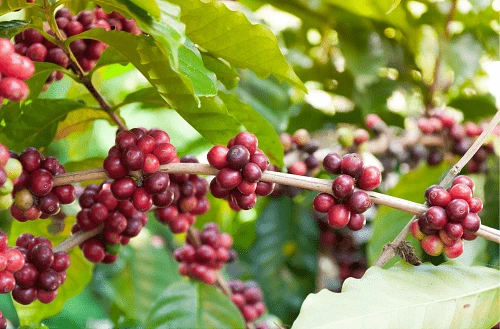Coffee
Single Estate and Single Origin Coffee
Single Estate and Single Origin Coffee
Coffee enthusiasts are often presented with a wide range of choices when it comes to selecting their favorite brew. In recent years, the terms “single estate coffee” and “single origin coffee” have gained popularity and sparked curiosity among consumers. These terms may sound similar, but they represent two distinct approaches to coffee production and sourcing. In this article, we will delve into the world of single estate and single origin coffees, exploring their unique characteristics, flavor profiles, and the factors that set them apart.
Understanding Single Estate Coffee
Definition and Characteristics
Single estate coffee refers to coffee beans sourced from a specific farm or estate. Unlike blends, which combine beans from various origins, single estate coffee allows for a more focused and controlled production process. It offers consumers a glimpse into the distinct qualities of a particular farm and the expertise of its growers.
Farming and Processing Methods
In the realm of single estate coffee, farmers employ meticulous farming and processing methods. From seed to cup, they carefully nurture the coffee plants, ensuring optimal growing conditions. This attention to detail extends to the processing stage, where beans are carefully harvested, sorted, and processed, resulting in a superior end product.
Flavor Profile and Unique Attributes
One of the primary appeals of single estate coffee lies in its unique flavor profile. The beans cultivated on a specific estate develop distinct characteristics influenced by factors such as soil composition, altitude, and climate. This individuality allows coffee connoisseurs to explore a vast range of flavors, from fruity and floral to nutty and chocolatey, depending on the estate’s location and cultivation practices.
Unveiling Single Origin Coffee
Definition and Key Features
Single origin coffee encompasses a broader category than single estate coffee. It refers to coffee beans sourced from a specific geographic region, such as a country or even a smaller locality within a country. While single estate coffee focuses on a specific farm, single origin coffee celebrates the broader regional characteristics of the beans.
Geographic Considerations
When exploring single origin coffee, geographic considerations play a significant role. Different regions across the globe have their own coffee-growing cultures, traditions, and terroirs. This diversity allows coffee enthusiasts to embark on a journey of discovering the flavors inherent to various origins, from the vibrant acidity of African beans to the rich and balanced flavors of Central and South American coffees.
Flavor Diversity and Terroir
Terroir, a term often associated with wine, also applies to coffee. It encompasses the environmental factors that shape a coffee bean’s flavor. Single origin coffees showcase the diversity of flavors resulting from variations in soil composition, climate, altitude, and cultivation methods. This diversity appeals to those seeking new and exciting taste experiences.
Differentiating Single Estate and Single Origin Coffee
Focus on Quality and Control
While both single estate and single origin coffees offer unique characteristics, they differ in terms of focus and control. Single estate coffee places emphasis on maintaining quality control throughout every step of the production process, ensuring consistency and showcasing the distinct attributes of a specific farm. In contrast, single origin coffee highlights the broader regional flavors and allows for a more extensive exploration of various coffee-growing areas.
Traceability and Transparency
Single estate coffee provides a higher level of traceability and transparency. By sourcing beans from a specific farm, consumers can gain insights into the farm’s practices, sustainability initiatives, and even the livelihoods of the farmers. This transparency fosters a stronger connection between coffee lovers and the people behind their favorite brew.
Market Appeal and Consumer Preferences
The market appeal of single estate and single origin coffees may vary depending on consumer preferences. Some coffee enthusiasts value the story and uniqueness associated with single estate coffee, while others enjoy the exploration and diversity offered by single origin options. Both approaches have their merits, and the choice ultimately depends on personal taste and curiosity.
The Benefits of Single Estate Coffee
Superior Quality Assurance
Single estate coffee offers a high level of quality assurance. Since the beans come from a specific farm, growers can closely monitor every step of the production process, from cultivation to processing. This attention to detail ensures that only the finest beans are selected, resulting in a more consistent and superior cup of coffee.
Connection to Specific Farms and Communities
Choosing single estate coffee provides an opportunity to connect with specific farms and their communities. By supporting these farms, consumers contribute to the livelihoods of the farmers and their families. This direct connection adds a layer of authenticity and social responsibility to the coffee-drinking experience.
Supporting Sustainability and Fair Trade
Many single estate coffee producers prioritize sustainable farming practices and fair trade principles. By choosing single estate coffees, consumers can align their values with their purchase decisions, supporting environmentally friendly practices and fair compensation for farmers. This conscious choice contributes to a more sustainable and ethical coffee industry.
Exploring the Advantages of Single Origin Coffee
Wide Flavor Spectrum and Exciting Discoveries
Single origin coffee offers a wide flavor spectrum, with each origin presenting its own distinct characteristics. From the bright acidity of Kenyan coffee to the earthy undertones of Sumatran beans, coffee enthusiasts can embark on an exciting journey of taste exploration. Single origin coffees allow for the discovery of new and unique flavor profiles.
Celebrating Coffee’s Origins and Cultures
Single origin coffee celebrates the diverse origins and cultures associated with coffee. It allows consumers to appreciate the rich heritage and traditions of specific regions, as well as the stories behind their beloved brews. This cultural connection adds depth and meaning to the coffee-drinking experience.
Supporting Small-Scale Farmers and Local Economies
Choosing single origin coffee supports small-scale farmers and local economies. These farmers often rely on the coffee industry as a vital source of income. By purchasing single origin coffees, consumers contribute to the sustainability of these farming communities, helping them thrive and preserve their cultural heritage.
Single Estate and Single Origin Coffee: Which to Choose?
Considerations for Flavor Enthusiasts
For flavor enthusiasts seeking consistency and a more focused taste experience, single estate coffee provides an excellent choice. It allows them to explore the specific attributes of a farm and its beans, providing a consistent and reliable flavor profile with each cup.
Factors to Evaluate When Purchasing Coffee
When choosing between single estate and single origin coffees, several factors come into play. Consider your preferences regarding flavor diversity, consistency, traceability, and the connection you desire with the coffee’s origin. Additionally, explore the farming practices, certifications, and ethical considerations associated with the coffee you’re considering.
Balancing Personal Preferences and Exploration
Ultimately, the choice between single estate and single origin coffees depends on personal preferences. Some individuals may prefer the distinct flavors and connection to specific farms offered by single estate coffee. Others may lean towards the diversity and exciting discoveries associated with single origin options. There is no right or wrong choice—both approaches have their merits and cater to different coffee lovers’ tastes.
Conclusion
In the realm of specialty coffee, both single estate and single origin coffees have captivated the attention of enthusiasts worldwide. Single estate coffee showcases the unique qualities of a specific farm, offering consistency and quality assurance. On the other hand, single origin coffee celebrates the broader regional flavors and fosters exploration. The choice between single estate and single origin coffee depends on individual preferences, with each option providing a distinct and fulfilling coffee-drinking experience.
FAQs
1. What does “single estate” mean in coffee?
Single estate refers to coffee beans sourced from a specific farm or estate. It highlights the focused production process and allows consumers to experience the unique qualities of that particular farm’s coffee beans.
2. Is single estate coffee always single origin?
Yes, single estate coffee is always single origin. By sourcing beans from a specific farm, single estate coffee offers a more focused and controlled approach to coffee production and sourcing.
3. How does the flavor of single estate coffee differ from single origin?
The flavor of single estate coffee is influenced by the specific farm’s characteristics, including factors such as soil composition, altitude, and climate. In contrast, single origin coffee showcases the broader regional flavors and diversity associated with a specific geographic area.
4. Are single estate and single origin coffees more expensive?
Single estate and single origin coffees can vary in price depending on factors such as rarity, quality, and demand. While some options may be more expensive, there are also affordable choices available in both categories.
5. Where can I find single estate and single origin coffee?
Single estate and single origin coffees are often available from specialty coffee roasters, local coffee shops, and online retailers. Check out their offerings and explore the diverse world of coffee origins and estates to find your preferred brew.

